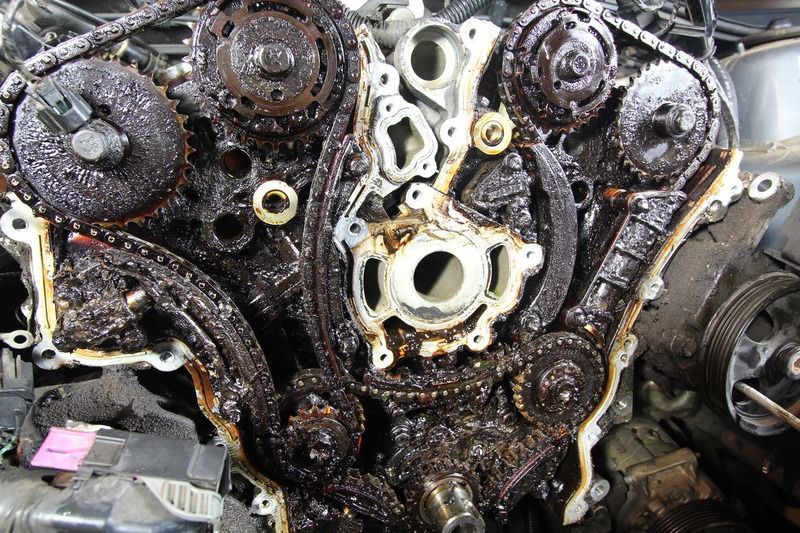As the original owner of a 2012 Traverse, I am a bit upset that my timing chains failed at 64,000 miles.
My Brother went through this at 70,000 on his 2008 Traverse. I had read when he had problems with his vehicle that GM knew in 2008 they had an issue with the chains. I read the reason was poor chains, combined with an oil change schedule that was set too long between changes by GM. The word was a new vendor was found for the chains with better quality, and the oil change interval was dialed back to avoid this situation going forward. The story was if you had a 2010 or newer 3.6, this problem was solved. When my check engine light came on, I was not expecting to hear the chains were the issue, but that was the phone call I received from my dealer. I asked the service rep why my 2012 was having these issues and was told I was not alone, they are seeing more and more 2011's and 2012's.
So obviously this issue has not been fixed. This is stunning to me as this engine was designed to be used in Cadillac and is currently being used in about every vehicle GM has. I have changed my oil every 4 to 5000 miles, never exceeding 5000 miles so I'm not buying the oil issue, but I did see on my service ticket that my screens were filled with sludge. My question is what is the real issue here, lack of oiling? Design error? Isn't it time to tell customers the truth? Are there any warranty extensions on these vehicles with these engines? Seems to me there should be.
I like many things about my Traverse, and was considering purchasing another one, but I will not do that with these unresolved engine issues. My vehicle was in the shop over a week and I picked it up this morning. After driving it I discovered it's leaking anti-freeze and had to return it to the dealer.
My Brother went through this at 70,000 on his 2008 Traverse. I had read when he had problems with his vehicle that GM knew in 2008 they had an issue with the chains. I read the reason was poor chains, combined with an oil change schedule that was set too long between changes by GM. The word was a new vendor was found for the chains with better quality, and the oil change interval was dialed back to avoid this situation going forward. The story was if you had a 2010 or newer 3.6, this problem was solved. When my check engine light came on, I was not expecting to hear the chains were the issue, but that was the phone call I received from my dealer. I asked the service rep why my 2012 was having these issues and was told I was not alone, they are seeing more and more 2011's and 2012's.
So obviously this issue has not been fixed. This is stunning to me as this engine was designed to be used in Cadillac and is currently being used in about every vehicle GM has. I have changed my oil every 4 to 5000 miles, never exceeding 5000 miles so I'm not buying the oil issue, but I did see on my service ticket that my screens were filled with sludge. My question is what is the real issue here, lack of oiling? Design error? Isn't it time to tell customers the truth? Are there any warranty extensions on these vehicles with these engines? Seems to me there should be.
I like many things about my Traverse, and was considering purchasing another one, but I will not do that with these unresolved engine issues. My vehicle was in the shop over a week and I picked it up this morning. After driving it I discovered it's leaking anti-freeze and had to return it to the dealer.





